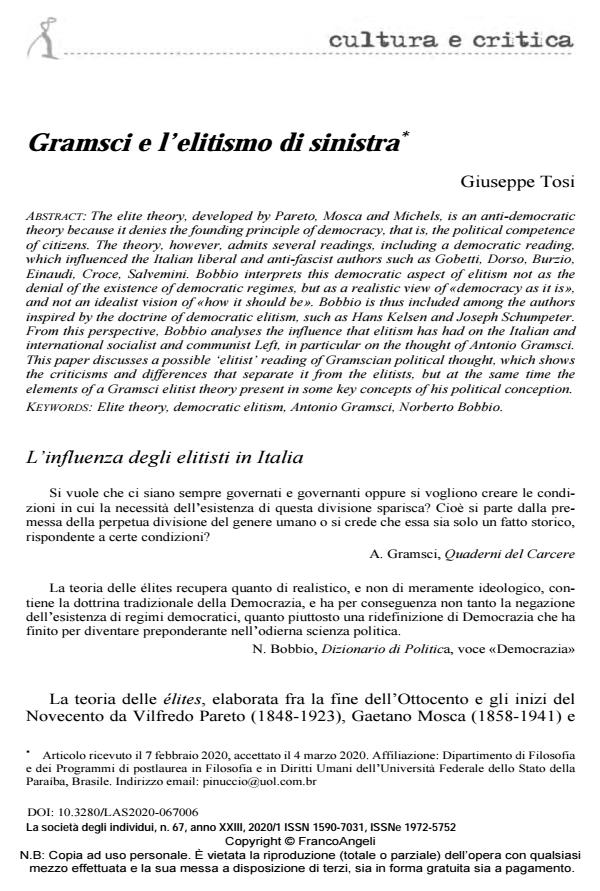Gramsci e l’elitismo di sinistra
Journal title SOCIETÀ DEGLI INDIVIDUI (LA)
Author/s Giuseppe Tosi
Publishing Year 2020 Issue 2020/67
Language Italian Pages 22 P. 36-57 File size 248 KB
DOI 10.3280/LAS2020-067004
DOI is like a bar code for intellectual property: to have more infomation
click here
Below, you can see the article first page
If you want to buy this article in PDF format, you can do it, following the instructions to buy download credits

FrancoAngeli is member of Publishers International Linking Association, Inc (PILA), a not-for-profit association which run the CrossRef service enabling links to and from online scholarly content.
The elite theory, developed by Pareto, Mosca and Michels, is an anti-democratic theory because it denies the founding principle of democracy, that is, the political competence of citizens. The theory, however, admits several readings, including a democratic reading, which influenced the Italian liberal and anti-fascist authors such as Gobetti, Dorso, Burzio, Einaudi, Croce, Salvemini. Bobbio interprets this democratic aspect of elitism not as the denial of the existence of democratic regimes, but as a realistic view of «democracy as it is», and not an idealist vision of «how it should be». Bobbio is thus included among the authors inspired by the doctrine of democratic elitism, such as Hans Kelsen and Joseph Schumpeter. From this perspective, Bobbio analyses the influence that elitism has had on the Italian and international socialist and communist Left, in particular on the thought of Antonio Gramsci. This paper discusses a possible ‘elitist’ reading of Gramscian political thought, which shows the criticisms and differences that separate it from the elitists, but at the same time the elements of a Gramsci elitist theory present in some key concepts of his political conception.
Keywords: Elite theory, democratic elitism, Antonio Gramsci, Norberto Bobbio
Giuseppe Tosi, Gramsci e l’elitismo di sinistra in "SOCIETÀ DEGLI INDIVIDUI (LA)" 67/2020, pp 36-57, DOI: 10.3280/LAS2020-067004